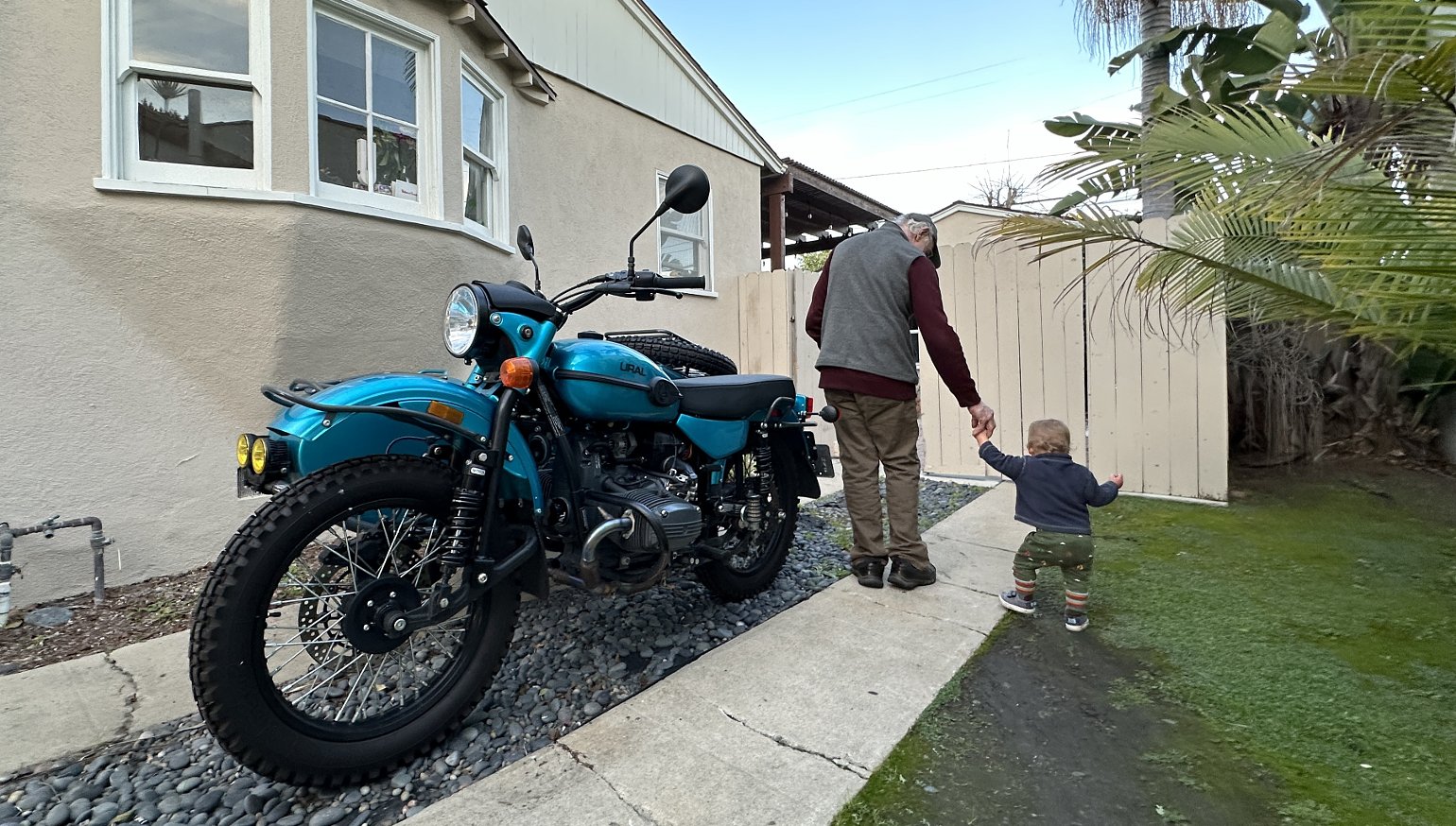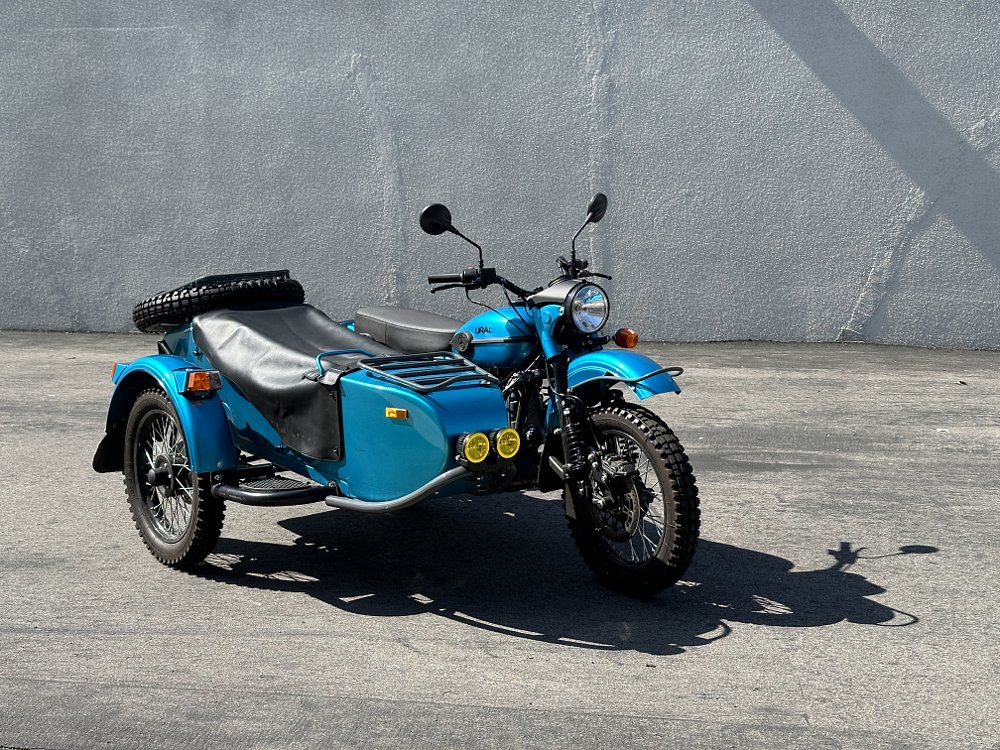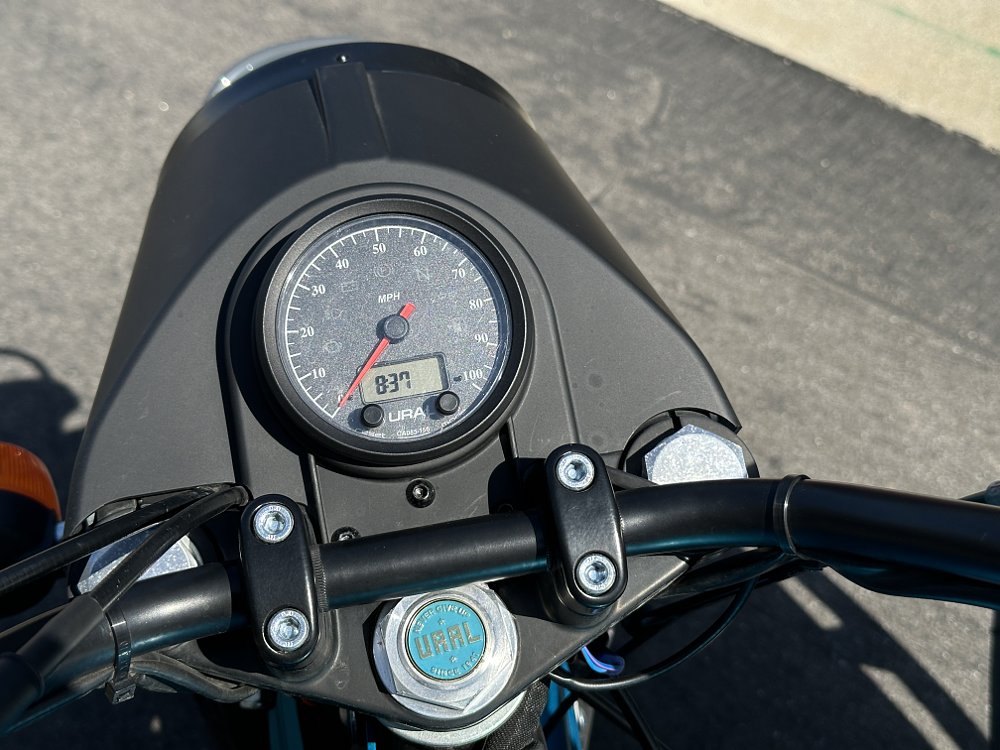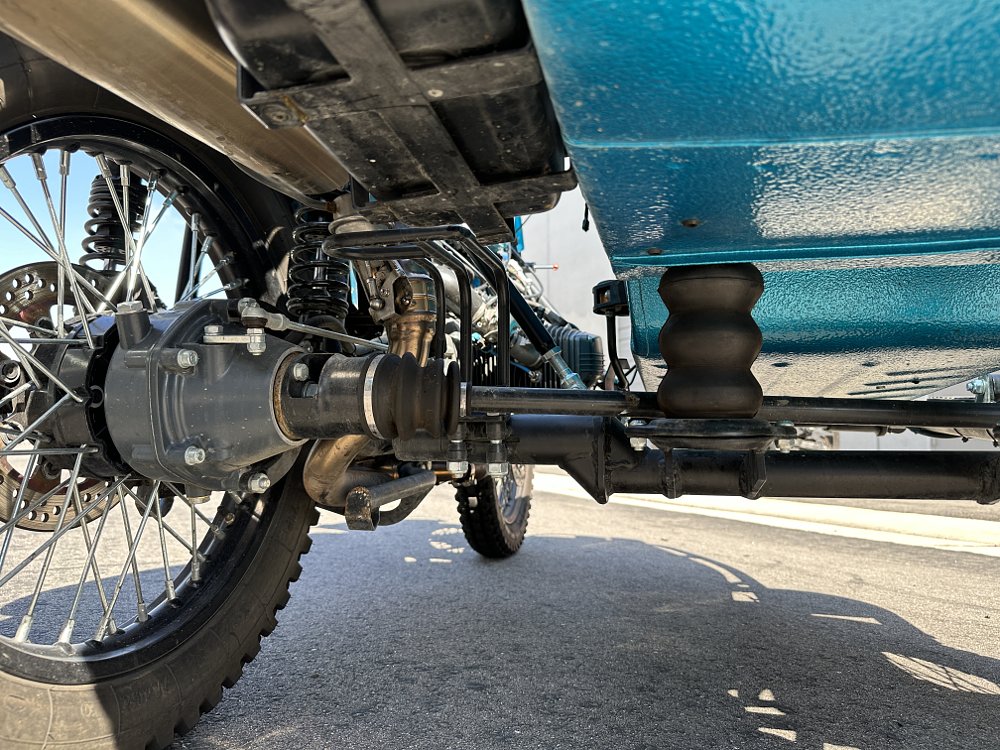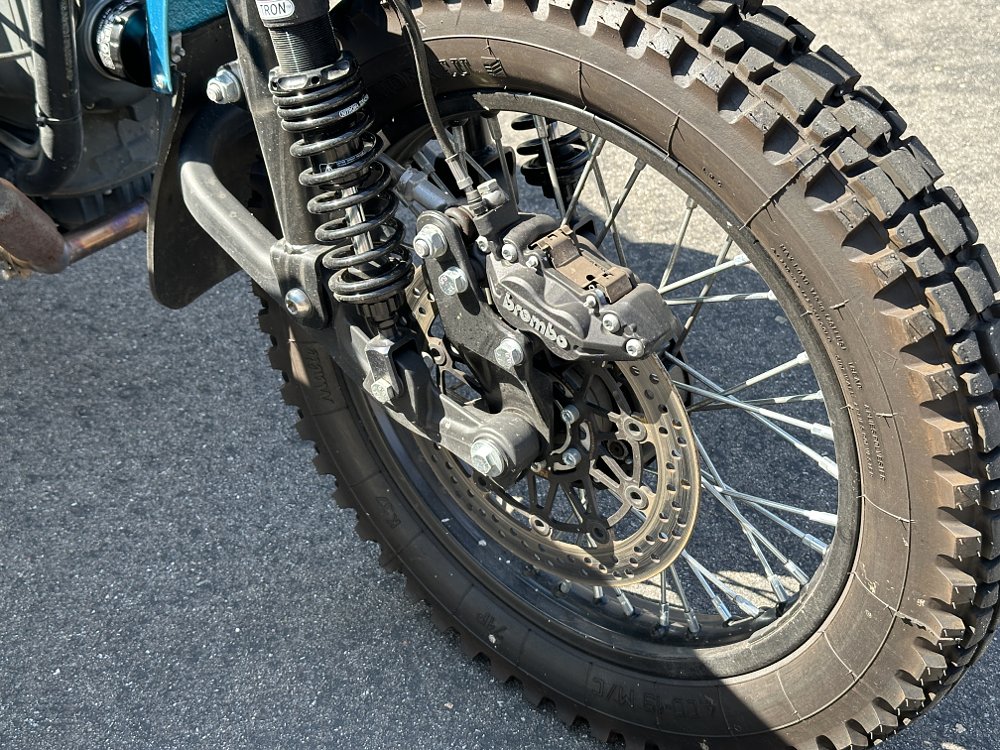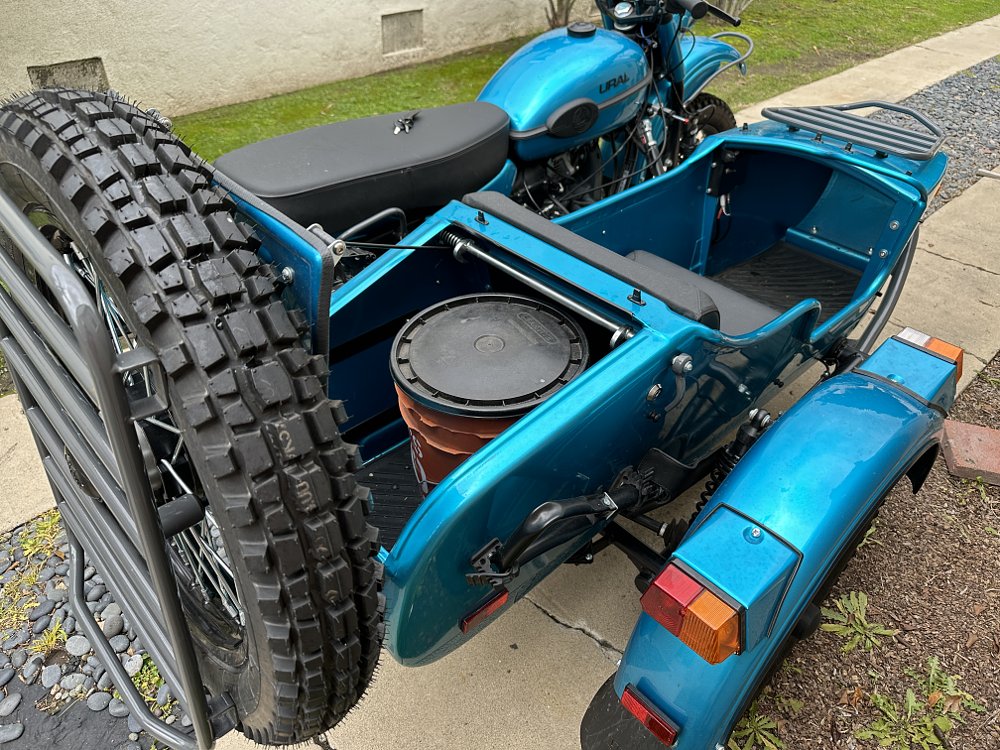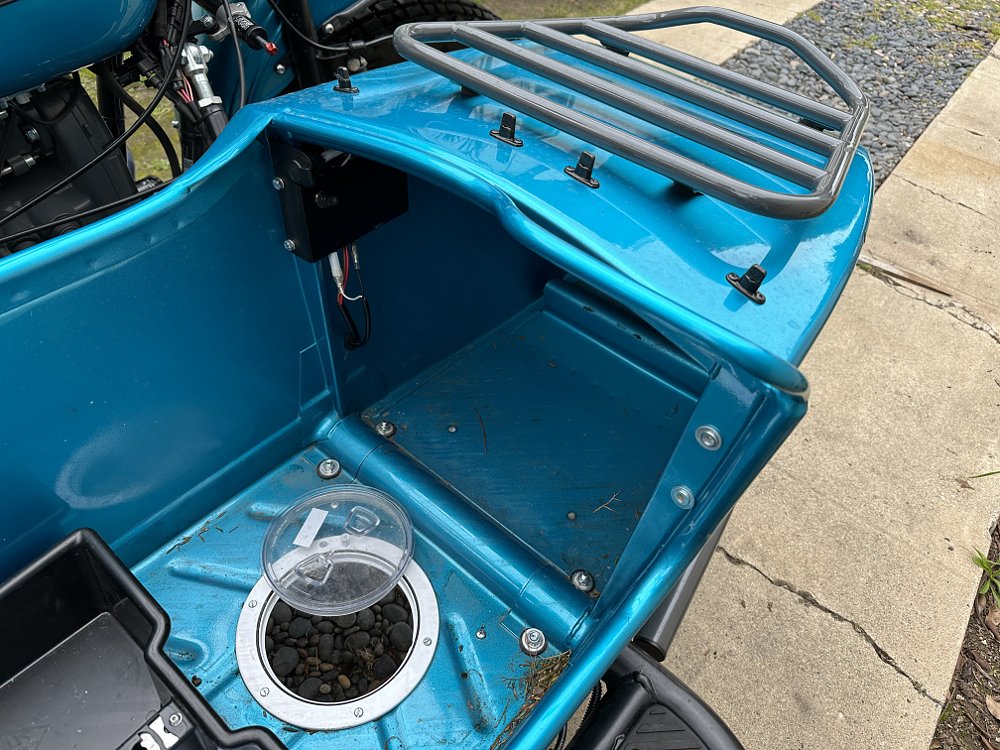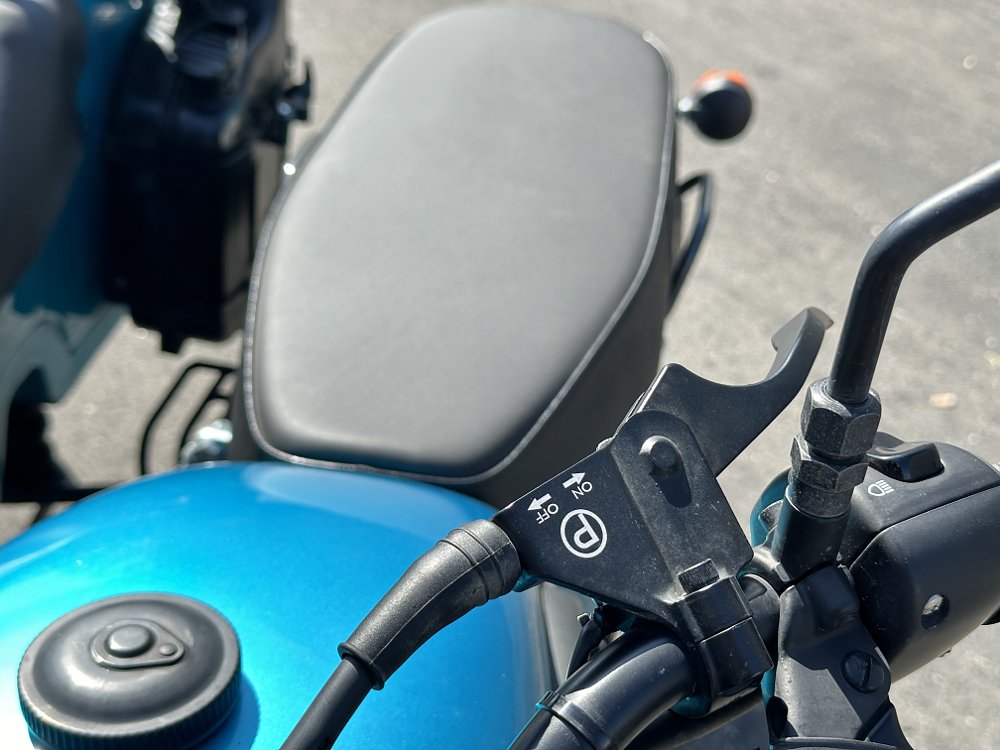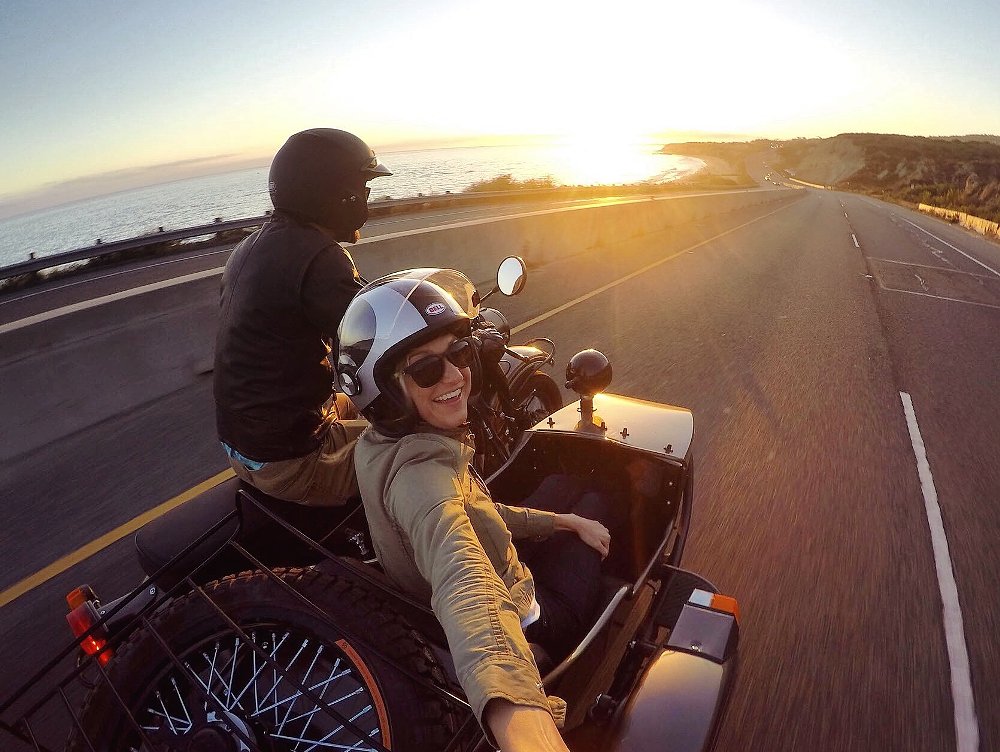Sometimes it feels like the worst machines are the easiest to love. How do you tell if a machine is bad? Everyone’s definition will vary, but if you’re looking for the one that makes the least sense, a Ural Gear Up is tough to beat.
As a two-wheeled vehicle, it is a strange time capsule — initially a Russian knock-off of a World War II-era BMW that has slowly evolved over decades and yet stayed nearly as obsolete as ever. To make it more eccentric, it has a sidecar. Made from what I assume are the heaviest and thickest metals available in Kazakhstan and powered by a 41-horsepower, two-valve-per-cylinder, air-cooled flat twin, the Ural is objectively heavy and especially slow, even for a three-wheeled vehicle.
It’s also incredibly charming. It looks like it was pulled straight off the set of an Indiana Jones movie and sounds like a cross between an old car and a piece of farm equipment. It evokes huge emotions from people who know nothing about motorcycles, and for people who do know about motorcycles it often does the same.
Urals are rare birds, yet arguably the only practical choice for buying an entire brand-new motorcycle-and-sidecar outfit from a real company, and therefore they have become one of the most popular rigs of their kind on the road. Hardly generic, and also the most common badge to expect if you see a sidecar in the wild. Piloting a Ural captures most of the basic feelings of sidecar life, for better and worse.
One ride, two journeys
Acceleration is marred by dragging the hack along and, because the thing is so asymmetrical, the whole contraption pulls hard to one side. With a right-hand outfit, like Big Blue in these photos, getting up to speed means constant pressure on the handlebar, fighting to keep left in the lane or on the road. Deceleration is just the opposite, with the sidecar yanking the bike out of alignment and into the oncoming lane, making the rider fight physics all over again.
A couple of factors help ease this obvious flaw. One is the linked brake system on this Gear Up, which ties the motorcycle’s rear brake to another caliper on the sidecar wheel. Using the rear brake to slow a rig like this has always been a good idea, but the hack being able to slow itself makes a huge difference in stability and ease of use.
The other thing that helps mitigate the instability and effort of going or stopping is the peculiar joy of holding a steady speed. Cruising along anywhere between 35 and 55 mph is delightful. The inherent imbalance of the machine is mostly muted and there’s a feeling of calm and contentment, like the weightless sensation at the top of a trampoline jump. It's terrific, and made even better if someone is riding alongside.
Some or all of these subtleties will be lost on the person sitting in the chair, depending on who they are, and that’s just fine because they will also be in the midst of their own unique experience. If we take a moment to think about it, bolting an outrigger with a seat to a motorcycle is kind of a weird thing to do, and riding in a sidecar will probably cement that notion in your head. Even after many miles in many a sidecar, I have the same wave of vulnerability and excitement wash over me every time I sit in one.
For the pilot of a Ural, there are practically no subtleties that will go unnoticed, in part because so little about a sidecar is subtle. It’s not just the acceleration and deceleration that’s lopsided, every aspect of riding a motorcycle with a sidecar offers some fresh challenge. The equilibrium that a typical motorcyclist enjoys going through any corner, controlling the lean and avoiding large exertions, is shattered with a hack attached.
Compared to a motorcycle, the effort is high, and the consequences can really sneak up on you. Years ago, riding another Ural, I misjudged a decreasing-radius corner with the sidecar on the inside, and my instinct to slow down and ask the machine to turn more only made the problem worse. When the cornering forces overwhelmed the outrigger’s weight the sidecar wheel came off the ground and I drifted into the oncoming lane of a narrow bridge.
I remember seeing the grille of an early-90’s Oldsmobile coming at me and thinking it might be the end. Instead, I managed to drag the left cylinder head of the Ural’s engine down the side of the car, peeling part of the rear door off and blowing the left rear tire of the Olds. The kid driving said he was only late to smoke a bong with his brother, and didn’t mind filling out insurance paperwork.
The same mistake could be made on a two-wheeler, no doubt, but the physics don’t feel like such entrapment as they do on a sidecar outfit. Every hack is a different weight and height, each bike interacts with the road in a different way, and the combination can be really tricky to read. It is so much more complex and confounding than simply trying to miss potholes with an extra wheel.
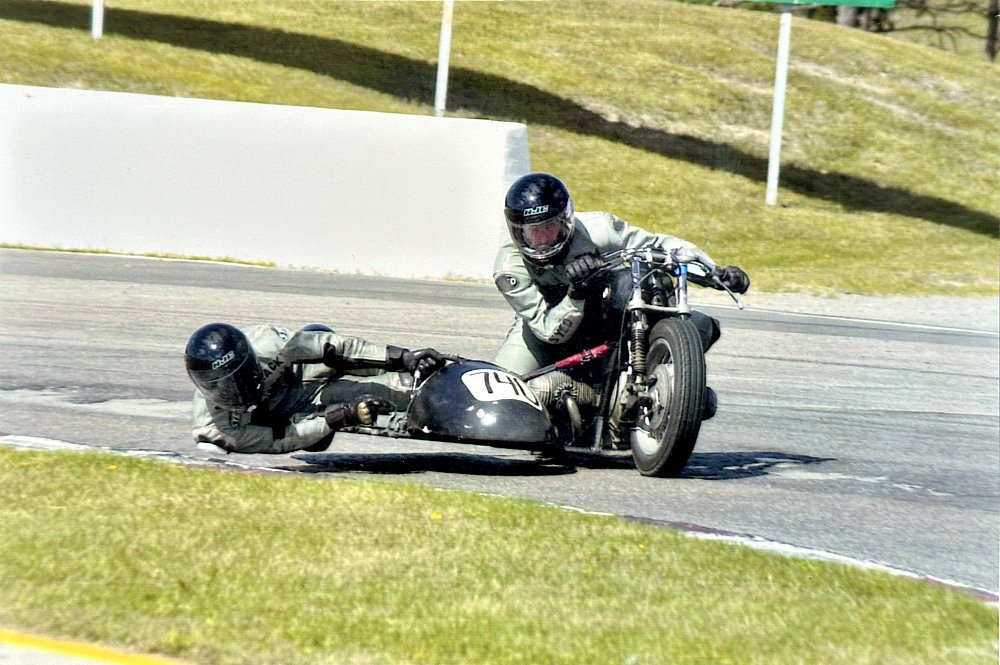
All of the black magic stirred into every rig’s recipe also helps explain the fun of lifting the sidecar wheel on purpose. It’s an entirely new kind of balance with a motorcycle, a feeling that will connect you with anyone else who has done it and might even make you feel closer to other people doing seemingly absurd things in faraway lands. “I get it,” you could think, after flying the chair.
Diagnosing the charm
For me, sidecars are a family tradition. I grew up with motorbikes in the garage and a hack was never far away. Eventually I roadraced them with my dad, and as an adult sidecars have dipped in and out of my life, always delivering some amount of adventure along with a slice of that wistful and giddy emotion I felt as a kid.
I remember my dad riding my friends and I around in elementary school, dangling the chair up off the ground as we squealed and laughed. At one point we had a “VMW” rig — a BMW R60/2 with a Ural sidecar, powered by an air-cooled flat four from a Volkswagen, that my pops rode back from California to my hometown in Vermont. I also remember a rainy and treacherous race weekend in Canada where one particular slide got away from daddio at the controls. The rig spun and started to flip, catapulting me over the bike and sending me sliding down the front straightaway on my stomach.
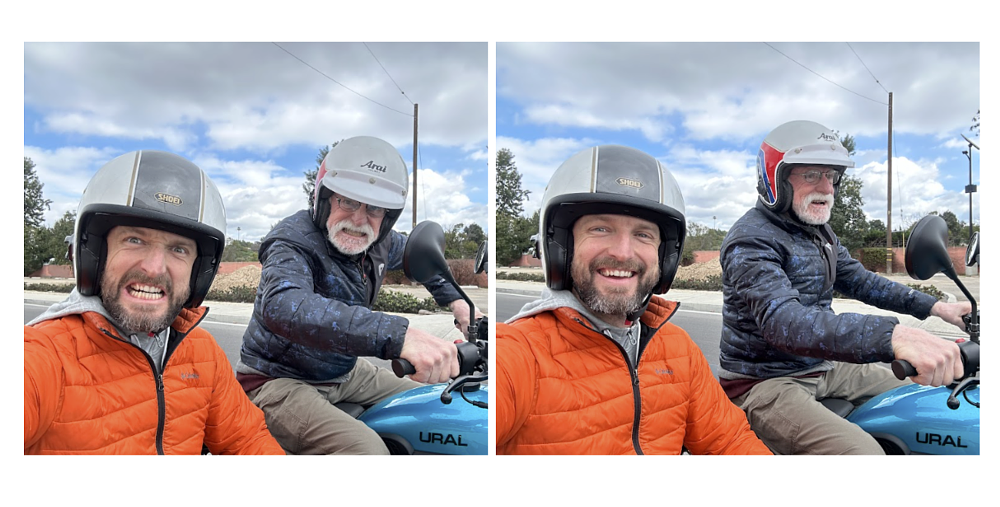
In fact, part of being instilled with a love for sidecars at an early age is also learning to respect the dark side of the hobby. A horse is also a curious and majestic creature, and I challenge you to find someone who grew up around horses that doesn’t have a scary story or two. I’ve seen and been a part of enough sidecar accidents to know that the way they crash is just as special as the way they look.
Even so, all of the quirks add a new dynamic and new texture to the pastime that motorcyclists enjoy. Riding in a sidecar is somehow more immersive than being on the back of a two-wheeler, sitting in a little pod as the world flashes by, unencumbered by a person in front. Maybe for these reasons it feels like a popular and inviting way to introduce newbies or children to motorcycling.
Sidecars are often slow and non-threatening, plus they don’t tip over when they come to a stop. My kiddo is just learning to walk and talk, so he’s a long way from controlling his own motorcycle, but the idea of trundling around town in a sidecar feels like it could be right around the corner. Maybe.
In the end
Some of the way sidecars draw us in is simple. They are odd, and just like an egg with two yolks a motorcycle with a sidecar is more likely to elicit questions or conversation. But I've found that it's more than that, it's a whole new dimension of the pastime motorcyclists love. A familiar experience can feel new again and a new experience will be unlike it would have been on two wheels. Maybe for that reason, riding a sidecar will always be special to me in ways that most machines can't touch.
If you’ve never ridden in or piloted a sidecar the whole experience will be fresh and strange, and it will connect you with the few other people you’re likely to meet who have done it. For old hands at the helm of a hack, a sidecar in motion flexes and creaks like an ancient ship crashing through waves, all of which lands on the brain’s receptors in a different way. Understanding the bizarre imbalance and unique attitude of each machine is nothing if not engaging.
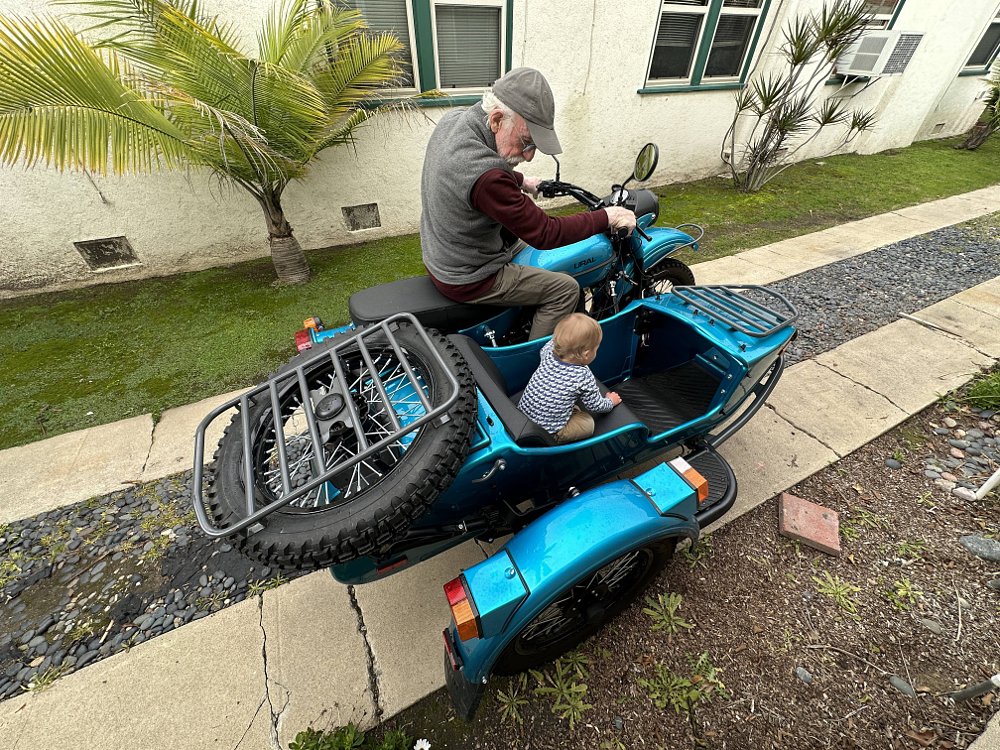
Sidecars have served some small niches of utility over the course of history, from efficient transportation in wartime to insurance and registration loopholes in austere times. Even if they have occasionally made sense, as vehicles they are pretty bad. Always unwieldy, usually heavy, and often expensive. A standard Gear Up from Ural, for example, is about $22,000 and this Gear Up Caribbean with custom paint and some rugged farkles is more like $26,000.
Regardless of how new or old, how expensive or cheap, sidecars are loveable. Or they’re memorable, at least. Then again, what is love if not a collection of good memories. People often enjoy letting the challenges and tribulations of an experience define how it lives on in their memory, because there’s pride in a good story and achievement after struggle. Motorcyclists are the same, which might be why the worst bikes can make us smile the most.
| 2024 Ural Gear Up | |
|---|---|
| Price (MSRP) | $21,999 (~$26,000 for Caribbean) |
| Engine | 749 cc, air-cooled, two-valve, flat twin |
|
Transmission, final drive |
Four-speed (plus reverse), shaft |
| Claimed horsepower | 41 @ 5,500 rpm |
| Claimed torque | 42 foot-pounds @ 4,300 rpm |
| Frame | Steel tube double cradle |
| Front suspension | IMZ leading-link fork, Nitron shocks adjustable for spring preload; 5.5 inches of travel |
| Rear suspension | Nitron shock, adjustable for spring preload; 3.8 inches of travel |
| Front brake | Brembo four-piston caliper, 295 mm disc |
| Rear brake | Brembo two-piston caliper, 265 mm disc; Mechanical J Juan caliper for parking brake |
| Sidecar brake | Brembo two-piston caliper, 245 mm disc |
| Rake | ~27 degrees |
| Wheelbase | 59 inches |
| Seat height | 32 inches |
| Fuel capacity | 5.0 gallons |
| Tires | Heindenau K37, 4.0 x 19 |
| Claimed weight | 750 pounds (dry) |
| Available | Now |
| Warranty | 24 months |
| More info | imz-ural.com |




